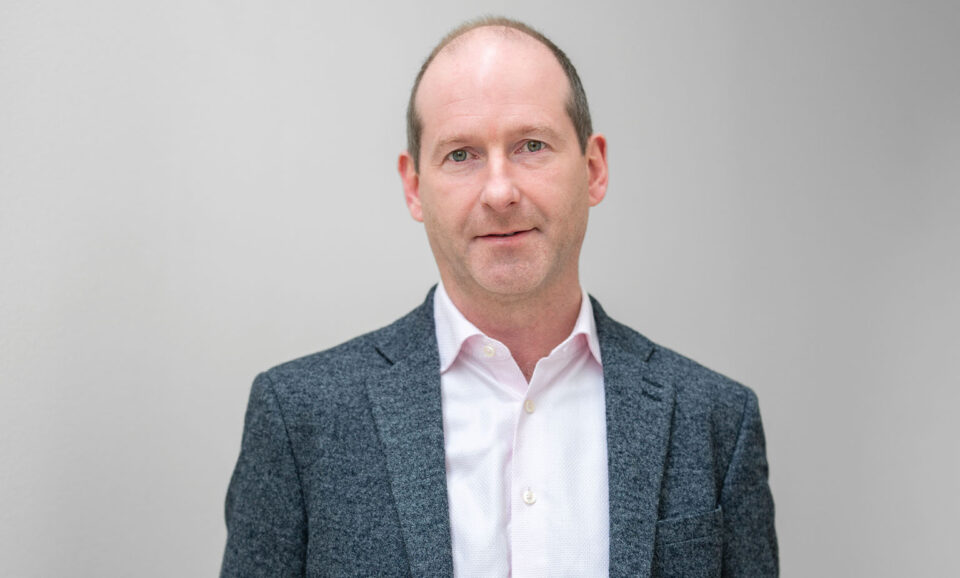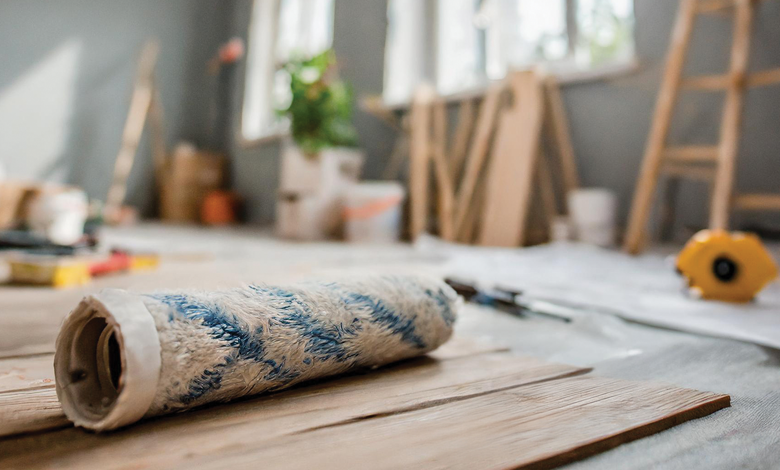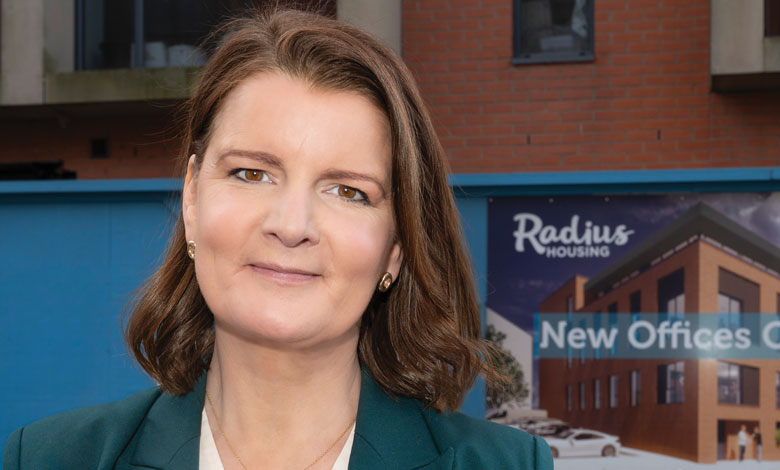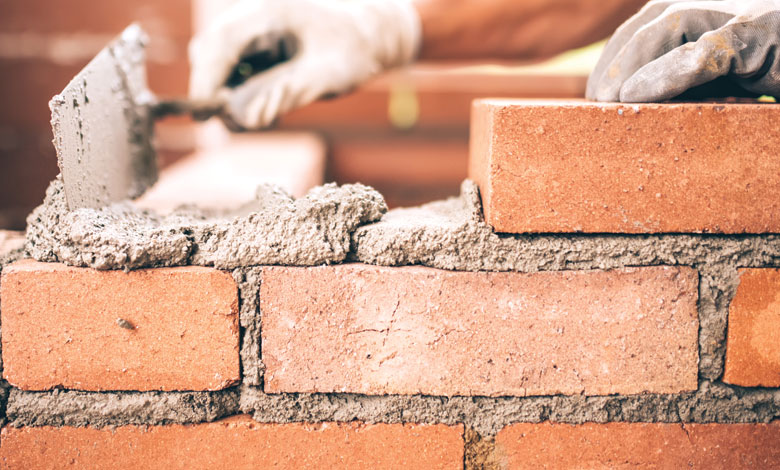
The Housing Supply Strategy
27th May 2022
Reaching resolutions through mediation
30th May 2022Time to talk about stigma
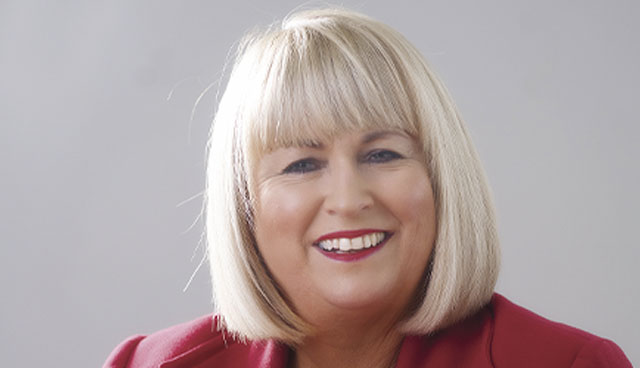
At Clanmil, our purpose is to provide homes for people to live well and over the past year we have been re-examining how best we can work with our customers to do just that, writes Carol McTaggart, Clanmil Housing Group Chief Executive.
We all know the importance of a good home. We know it is so much more than shelter. It is a place where we can belong, put down roots and be part of something bigger. It allows us to make the most of opportunities to flourish and grow. Essentially, it helps form who we are.
That is why it is so concerning when the tenure of our home, whether we own it or rent it, is used to define us and becomes a label by which others judge us and measure our worth in society.
Most of us will agree that it just should not happen that someone is judged because they rent their home from a social landlord. Yet this is our reality.
Too many people carry an often unconscious bias about social housing and the people who live in it. A survey of over 500 adults in Northern Ireland, carried out by the Chartered Institute of Housing in partnership with Professor Roger Awan-Scully of Cardiff University towards the end of 2020, revealed that stigma around social housing remains a persistent theme in Northern Ireland. 44 per cent of the people asked said they would never want to live in social housing, and 56 per cent thought that social housing has high levels of anti-social behaviour and crime. Some did recognise the need for affordable housing, but many did not want it close to them.
With one in six households across Northern Ireland living in a social home, this sweeping stigmatisation simply cannot go unchallenged.
I grew up in social housing. Back then, you could easily identify social housing estates and there were times when I was made to feel there was something inferior about my home and my community because we lived in social housing. Whilst the house was a haven for me and my family during a turbulent time in Northern Ireland, its design and layout did not lend itself to our daily family life. Things like eating together as a family or finding quiet space for homework were impossible. Today we are working to provide quality, well designed homes that are tenure blind.
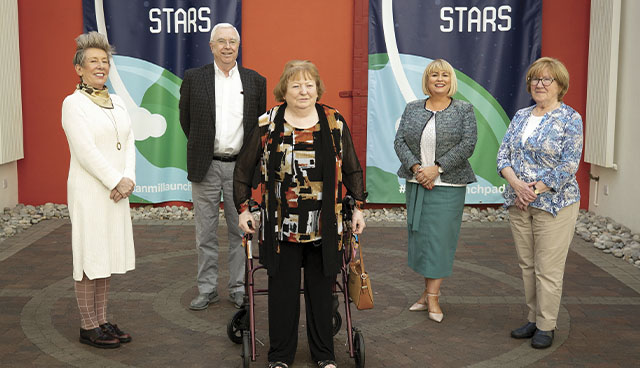
Carol McTaggart, Clanmil Housing Group Chief Executive (second from right) with some members of Clanmil’s Central Customer Council.
In England, a campaign run by people who live in social housing, called See the Person, looked closely at where the stigma comes from. They found the causes to be many and varied, including the way the media represents and reports on social housing and the people who live in it, and the fact that housing policy often promotes home ownership as superior to renting. More surprisingly, they also pointed to the role of social housing providers and the people who work for them in creating and reinforcing stigma. They called for landlords to work with tenants to tackle inappropriate views and language and to develop relationships of mutual respect.
At Clanmil we have been focusing on the relationships we have with the people who live in the homes we provide, and we have been making changes.
One thing we are doing is trying to avoid labels that could suggest that people who rent their homes are somehow different. We are challenging ourselves to see the person and to work hard to build the trust and great relationships that are essential if we are to fulfil our purpose.
The people who live in our homes are our customers. They expect, and deserve, a standard of customer service from us that is as good as they receive from other businesses. While we do not always get it right, we want to meet this expectation and make sure that the customer experience with us is the best it can be.
We are working hard with our customers to rebalance our relationships with them by moving towards a customer space where people have a say in the services we provide and how we deliver them.
We are building a diverse pool of customers who are helping to shape our services and we are encouraging them to raise their voices on behalf of the more than 10,500 people who live in our homes, placing them front and centre of our decision making.
This has not been without its challenges. Building mutually respectful relationships takes time, focus and most of all, a willingness from all to be open and receptive. It is an ongoing conversation that is transforming our understanding of our customers and helping us be more responsive.
I believe passionately in the importance of social housing. It plays such an important role in the quality of life for so many people. It is part of the solution, not the problem.
The stigma that too often surrounds it can affect people’s life chances and we must do something about that. It is time to have an open and honest conversation about the stigma associated with social housing.
This conversation needs to involve government, the media, housing providers, politicians, and of course, the people who live in social homes. We all need to ask ourselves how we are contributing to this stigma and how we can break down and challenge the bias surrounding social housing. We can all be part of the change that’s needed.
For our part at Clanmil, we will continue to work with our customers to create places where people want to live, where they are proud to live, and where they have the same opportunities as anyone else.
Contact
Clanmil Housing Group
T: 028 9087 6000
E: housing@clanmil.org.uk
W: www.clanmil.org.uk


